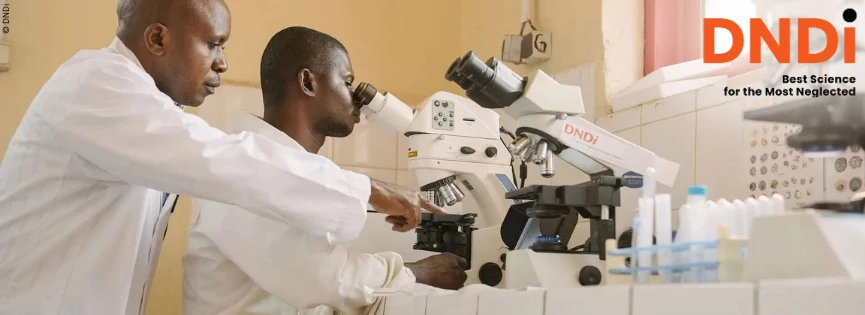Main content
Drugs for Neglected Diseases initiative 2023 Princess of Asturias Award for International Cooperation

The Drugs for Neglected Diseases initiative (DNDi) is a non-profit organization whose main objective is to discover and develop treatments for diseases considered “neglected” or ignored, and for others related to poverty and underdevelopment. It was created in 2003 through the efforts of seven public and private institutions: MSF, the Indian Council of Medical Research, the Kenya Medical Research Institute, the Oswaldo Cruz Foundation (Fiocruz) in Brazil, the Malaysian Ministry of Health, the Pasteur Institute (France) and the World Health Organization’s Special Programme for Research and Training in Tropical Diseases. In addition to its headquarters, it has eight regional offices around the world. The Board is chaired by Marie-Paule Kieny, while Luis Pizarro has been the organization’s Executive Director since 2002. The initiative receives funding from public and private entities. Throughout its history, it has received funds from the European Union (2017 Princess of Asturias Award for Concord), the World Health Organization (2009 Prince of Asturias Award for International Cooperation), the Bill and Melinda Gates Foundation (2006 Prince of Asturias for International Cooperation), the Carlos Slim Foundation and the “La Caixa” Foundation, among many others. According to data provided by the organization, one in five people worldwide (five hundred million of whom are children) suffers from at least one neglected disease. Their low incidence with respect to other types of ailments means that the development of drugs or treatments for them is not economically profitable. DNDi’s strategy is based on addressing the problem through working with the actors involved in the healthcare sector to enable not only treatments for these diseases to be created, but also affordable access to them. In partnership with pharmaceutical companies, it designs drug research, development and distribution projects; agrees on co-sponsorship projects for clinical studies and joint work with ministries of health and public institutions; and works together with knowledge and research centres around the world (universities, institutes, etc.) to reach the affected communities and patients, whose participation is key to covering the so-called “last step” of the process.
More than two hundred partners in over forty countries form part of this network that has managed to develop twelve treatments for six diseases so far. The pathologies which DNDi currently focuses its work on are river blindness (filariasis), sleeping sickness, Chagas disease, cutaneous and visceral leishmaniasis, hepatitis C, malaria, cryptococcal meningitis, dengue fever, HIV, mycetoma and, in recent years, COVID-19. It undertakes an average of twenty clinical studies each year and maintains nine R&D projects in phase III and in the registration process. Its Strategic Plan for the 2021-2028 period aims to obtain between fifteen and eighteen treatments and between eight and ten new medicines, promote inclusive and sustainable solutions (implementing, for example, half of phase I clinical trials in endemic countries), work hand-in-hand with more than fifty strategic partners to build coalitions with effective political impact and assess the feasibility and define priorities for the development of treatments among diseases which are candidates for inclusion in the DNDi portfolio, including dengue, snakebite and schistosomiasis. The DNDi has received the Frontiers of Knowledge Award from the BBVA Foundation (Spain, 2013). Founder and former executive director of DNDi Bernard Pécoul collected the Prince Mahidol Award (Thailand) in 2022, which he had been awarded in 2020.
End of main content
